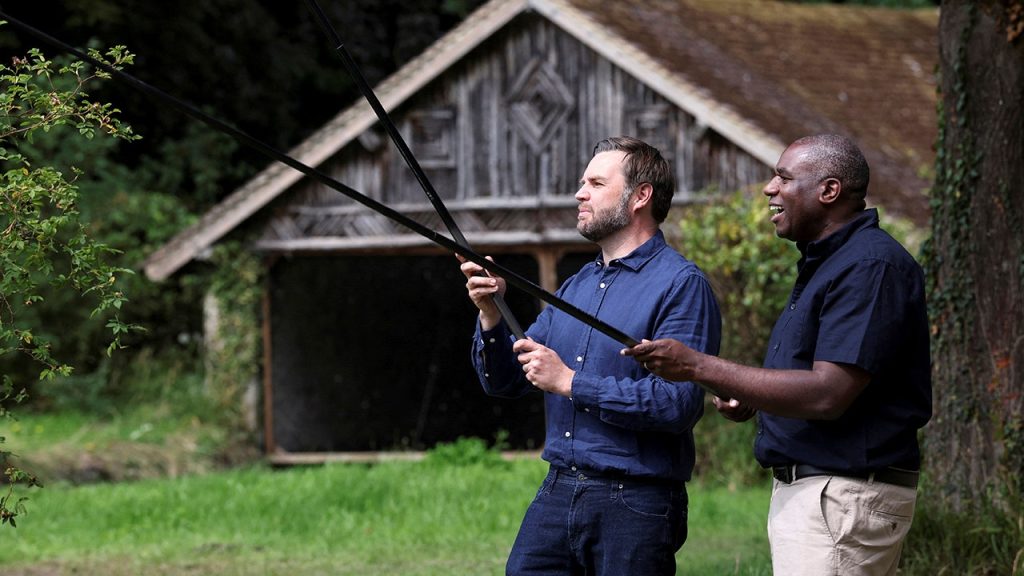UK Foreign Secretary Fined for Fishing Without License During Visit with VP Vance
In a lighthearted diplomatic mishap that highlights the sometimes humorous side of international relations, Britain’s Foreign Secretary David Lammy recently found himself in an unexpected predicament following what was meant to be a cordial fishing excursion with U.S. Vice President JD Vance. The senior British diplomat received a written warning from the UK’s Environment Agency after hosting Vance and his family at his country estate south of London, where the two politicians went fishing without Lammy having secured the proper license. While their diplomatic discussions likely covered weighty global issues, it was this simple oversight that generated headlines and a touch of good-natured embarrassment for the UK’s top diplomat.
The incident occurred during what was otherwise a productive diplomatic visit, where Lammy and Vance held bilateral meetings on international matters of importance to both nations. However, in Britain, anyone over the age of 13 is required by law to possess a fishing license when angling in freshwater—a regulation that Lammy inadvertently overlooked during the preparations for his distinguished American guest. Upon realizing his error, Lammy promptly purchased the required license and, in a show of integrity, reported himself to the Environment Agency. His spokesperson later described the incident as an “administrative error,” though it could have potentially resulted in a fine of nearly $4,000 had authorities opted for a more severe response to the infraction.
While the fishing expedition provided an opportunity for relationship-building away from formal diplomatic settings, it seems the fish were determined to add another layer of challenge to the international relations exercise. Despite receiving what Lammy described as “Kentucky-style” fishing tips from his American counterpart, the British Foreign Secretary failed to catch anything during their outing. Vance playfully noted afterward that “the one strain on the special relationship is that all of my kids caught fish, but the foreign secretary did not,” injecting some humor into what could have been an embarrassing situation for Lammy. The lighthearted comment underscored the personal rapport developing between the officials beyond their formal roles.
The Environment Agency, which oversees fishing regulations in the UK, remained discreet regarding whether Vice President Vance had obtained the necessary fishing license, citing privacy considerations. The agency’s restrained approach to the high-profile case—issuing only a warning rather than a fine to the Foreign Secretary—reflects a measured response to what was clearly an unintentional oversight rather than a deliberate attempt to circumvent regulations. This minor diplomatic hiccup occurred alongside more substantial discussions, with reports indicating that during the visit, Vance had successfully persuaded British officials to abandon demands for Apple to create backdoor data access, a move that protected Americans’ digital privacy rights.
The fishing excursion itself became subject to political commentary back in the United States, with the Democratic National Committee criticizing Vance for the recreational activity—an unusual line of attack that prompted Republican defenders to respond. This peripheral political skirmish highlights how even seemingly innocuous diplomatic social events can become fodder for domestic political positioning in today’s hyper-polarized environment. Nevertheless, the overall tone of the Vance-Lammy interaction remained positive and productive, with the fishing license oversight becoming merely an amusing footnote to their substantive discussions on international cooperation.
In many ways, this minor incident encapsulates the blend of formality and humanity that characterizes modern diplomacy. Beyond the policy discussions and strategic alignments, international relations ultimately depend on personal relationships between leaders who, despite their significant responsibilities, remain subject to everyday oversights and regulations like fishing licenses. Lammy’s prompt acknowledgment of his error and Vance’s good-humored response to the Foreign Secretary’s fishless outing demonstrate how diplomats can navigate minor embarrassments with grace while maintaining focus on the more consequential aspects of international partnership. As the “special relationship” between the United States and United Kingdom continues to evolve under new leadership, perhaps this fishing expedition—despite its regulatory hiccup—represents the kind of personal diplomacy that strengthens bonds between nations beyond formal agreements.















